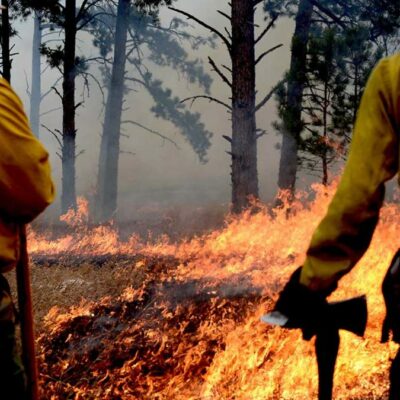A University of British Columbia researcher is taking a closer look at the impact of current forest management strategies — and how they could be causing more harm than good.
Lori Daniels, professor of forestry and conservation sciences, is evaluating the province’s wildfire history to understand what sort of changes need to be made to both forest and fire management in order to make landscapes more resilient to wildfires.
Low-intensity fires that crews quickly extinguish leave more fuel behind for the next season of dry, hot weather, Daniels told BC Today host Michelle Eliot.
“There’s more fuels that have accumulated, dead plants and dead pieces of wood, over time.
“Now when fire starts in those ecosystems, there’s much more fuel to burn, and it makes the fires more vigorous, faster moving, and we’ve heard our wildland firefighters telling us the fire behaviour they’re observing exceeds anything they’ve seen in their careers.”
Researchers have also suggested thinning trees as a tactic to remove fuel and prevent uncontrollable wildfires.
Temperatures have consistently broken historical records over the past few years, drying out forests and making them extremely susceptible to fire, she said.
The whole province is currently on moderate to high alert for wildfire risk and Daniels said it’s “heartbreaking” to hear about human-caused fires.
“All of us need to do our best to be sure that we’re not ignition sources, and that includes campfires, burning cigarettes, even recreational vehicles,” she said.
Lack of diversity in B.C.’s managed forests can also create risks, according to Daniels.
She said much of the focus has been on reintroducing coniferous, or needle leaf, trees after harvest to maximize timber production, but that narrowed the diversity of trees in the area and made the ecosystem more vulnerable to fires.
Broadleaf trees play an important role in forests by providing nutrients and creating shade and cooler conditions on the forest floor, Daniels said, all factors that make ecosystems more resilient.
Daniels presented her findings on forest resiliency and adaptation at the Ecological Society of America meeting in New Orleans Monday.
With files from BC Today

